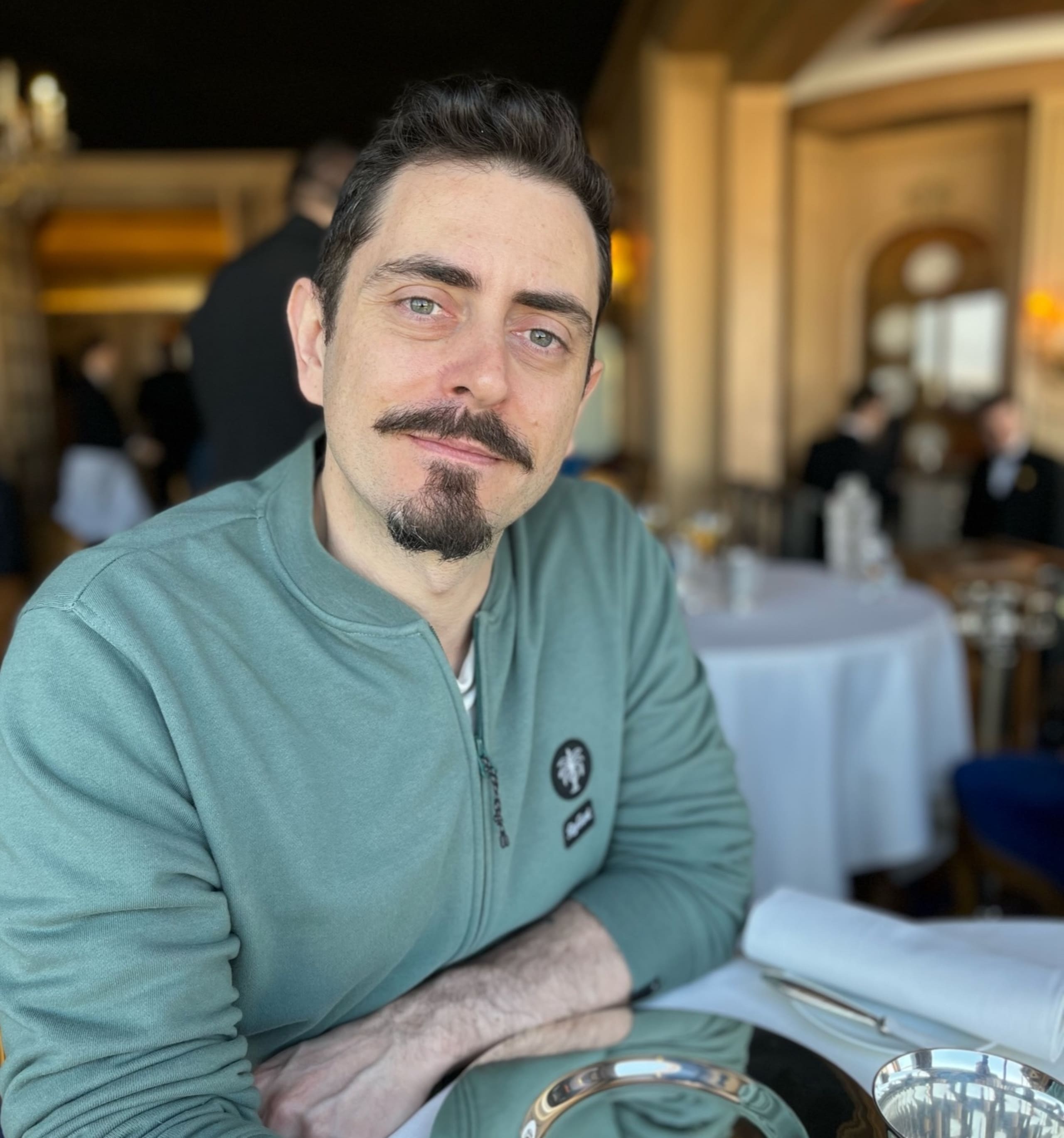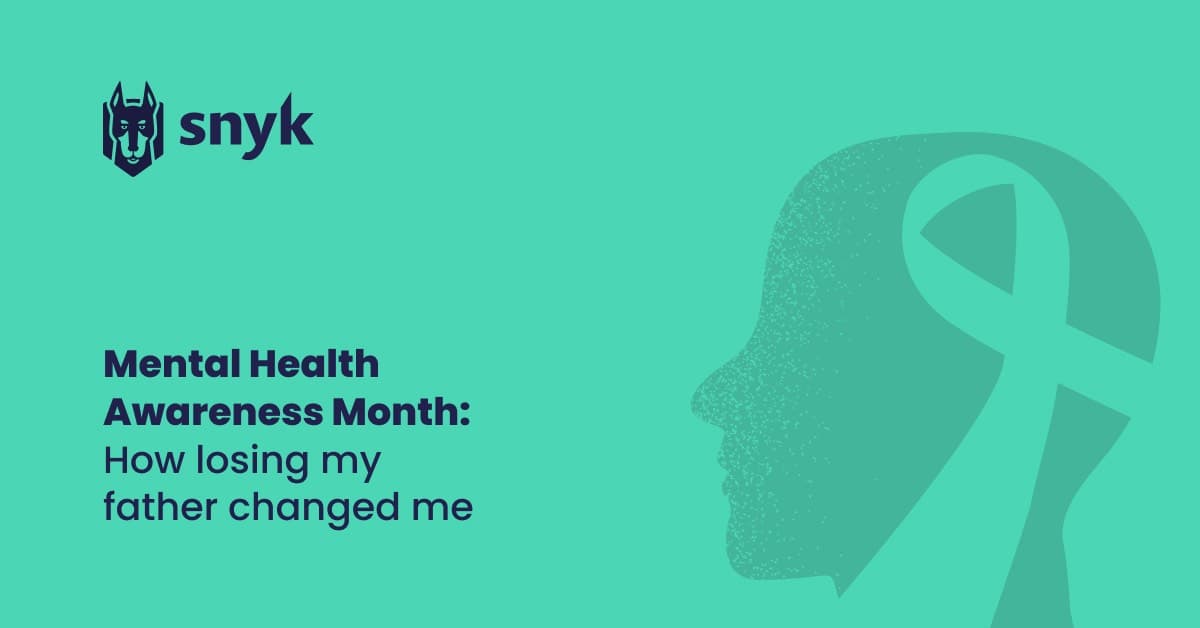Mental Health Awareness Month: How losing my father changed me
Tim Leroy
31 de maio de 2022
0 minutos de leituraIn honor of Mental Health Awareness Month, Tim Leroy, Senior Solutions Engineer based in London, shares how he coped with the tragic loss of his father a few months ago. He discusses tools he used to cope, how he balanced his mental health struggles while working full-time, and gives advice to others who may be struggling with a similar loss.

One of my recent, and biggest, struggles with mental health was when my father sadly passed away. I learned people could be out of your life forever at an early ago, but 4 months ago was the moment I really realised it.
His death didn’t come as a surprise, as my dad had been struggling with cancer for two years, with ups and downs, pulling me and my family on an emotional roller coaster. This also meant that instead of being propelled into bereavement mode, I was slowly being tortured with the various flavours of it: pain, hatred, remorse, hope, sadness, and anxiety.
He began having symptoms at the start of the pandemic in 2020. The real worry came way afterward in the summer, when one of the few available doctors in their area declared it “might be cancer” and he had to move to Paris temporarily to get urgent treatment.
My dad was a “bon vivant”, someone living without compromise, spoiling himself without thinking about the consequences, but also ignoring any health issues. He was a part of the generation who thinks everything can be solved with a pill.
A year and a half ago, I understood that he would never get better, despite his optimism, which was the start of my bereavement. Incidentally, this happened during COVID-19, when every friend I had in London left, and it was very difficult to travel. Oddly enough, however, I didn’t feel alone. I reached out to loved ones. I talked a lot, to my partner, my mum, and my sister. We shared stories, showed we were here for each other. My mindset changed from being angry to being sad to being in big brother mode, where I felt my mission was to look after the people who remained. Setting my mind to a mission was a pillar of my recovery journey.
When something so tragic happens, perspective and priorities change. You begin to skim what’s not necessary and lose patience over things that are not worth it. I did two things after my father died. First, I redefined my relationship with my partner (as in: detecting and changing the things that didn’t work), and I did the same with my career.
When he was first diagnosed, my mind was set on my career progression. But when he died, I didn’t have any mental energy left, and decided to pass on a career opportunity. It was hard to deal with the loss of my father while also working full-time. I talked to my manager about my father’s illness very early on, a few months after I joined Snyk. I wanted to let him know my mindset and how it could affect my work, even if it might be in small ways. He showed me compassion, and told me to take the time I needed, when I needed. When I had to bury my dad, I took some time off, and my amazing team covered for me so I could come back without any outstanding issues, which I am very grateful for.
Despite the pain of my father’s absence, I learned so much about myself through the loss. There’s the classic “carpe diem” which defines my mindset quite well, but I’d say I’ve changed my focus on living my life so I don’t have any remorse. This is what I do with every decision, which makes me stronger and more focused. The other surprising thing that happened is that the loss of a family member came with a need to create a new one, so with my partner we decided to build a family of our own.
If I could give advice to anyone else who is going through a similar loss, I would say: talk, speak up, open up to others, and find a support system. Don’t ever feel alone. Don’t be embarrassed to share your story, simply rant, or get solutions. We’re all human. We all share the same emotions, and we understand each other. Have faith. If you’re a man without a support system and you’re in London, I recommend joining one of the Proper Blokes Club walks, which is a walk and talk group for men’s mental health.
Mental Health Awareness Month is very important to me. I, personally, talk quite a bit about men's mental health — starting with the Movember campaign 10 years ago — and appreciate that Snyk Impact matched the $1,000 USD donations our team raised last year. I wish everyone knew that avoiding talking about issues, in any type of situation, is not sustainable. When it comes to mental health, I think it’s important to listen to and respect others, and open the floor up to deeper conversations.
At Snyk, we take the mental health of our employees seriously. We offer a generous amount of sickness and wellness days to support our employees’ mental and physical health around the world, and match employee donations to eligible mental health charities made through our Deed giving platform at 1:1 up to $500 USD/year. We also partner with TaskHuman to provide employees around the globe with free, unlimited access to 1-on-1 video coaching with live wellness professionals for physical, mental, emotional, and financial well-being.
If you’d like to learn more about our career opportunities, check out our open positions.
